#Yasutaka Tsutsui
Explore tagged Tumblr posts
Text

Nanase: The Telepathic Wanderers // Sayaka Yamazaki & Yasutaka Tsutsui
179 notes
·
View notes
Text

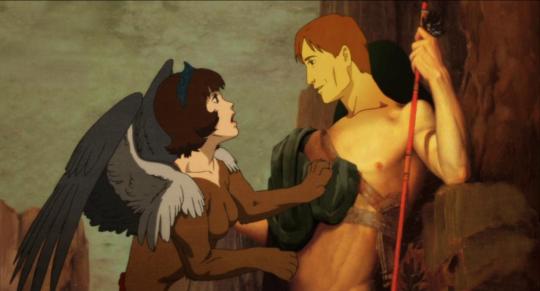


Paprika パプリカ 2006 Satoshi Kon
#anime#masterpiece#satoshi kon#great directors#japanese film#animation#great soundtrack#paprika#パプリカ#papurika#Yasutaka Tsutsui#Susumu Hirasawa
75 notes
·
View notes
Text
New Arrival 💮

8 notes
·
View notes
Photo
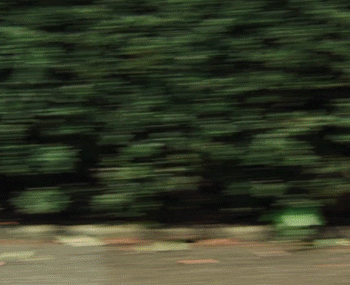
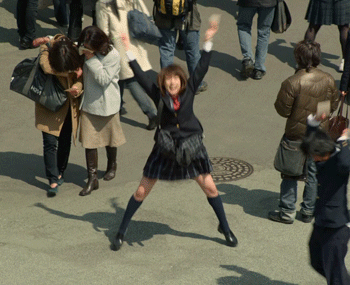
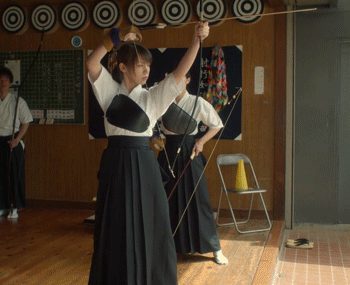


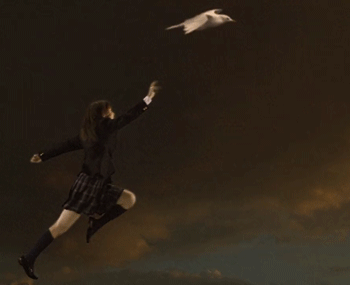
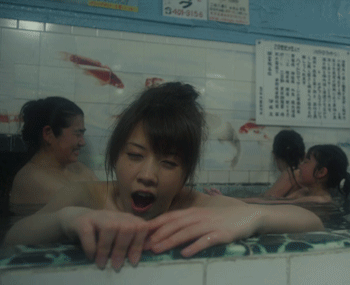
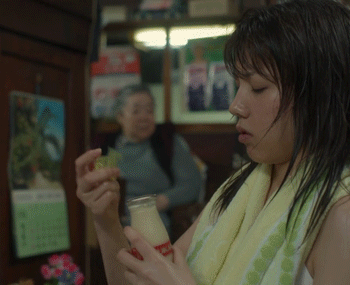

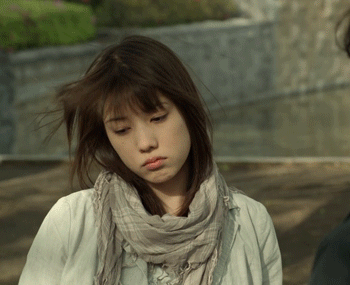
Time Traveller, The Girl Who Leapt Through Time
時をかける少女 (2010)
#Time Traveller The Girl Who Leapt Through Time#時をかける少女#Riisa Naka#仲里依紗#Masaaki Taniguchi#Yasutaka Tsutsui#Japan#movie#gif#2010
14 notes
·
View notes
Text

筒井康隆「断筆」めぐる大論争 月刊「創」編集部・編 創出版 表紙イラスト=塩井浩平
4 notes
·
View notes
Text
The Girl Who Leapt Through Time (Tomoyo Harada): J-pop
youtube
Former President of Kadokawa Shoten: Haruki Kadokawa is active in film production and has discovered two new actresses. They are Hiroko Yakushimaru and Tomoyo Harada. Both of them were successful singers as well. Among them, Tomoyo Harada's debut film is "The Girl Who Leapt Through Time" by Yasutaka Tsutsui, a sci-fi writer. It is a story about going back in time when you smell the scent of lavender in a science laboratory. At that time, Tomoyo Harada was youthful and her songs were hits.
♪You're my friend
don't disappear suddenly
To a place where we can never meet again
I have to go alone
Swear you don’t
I will be a wanderer
girl leaping time
love is a ship that takes off
Because it crosses the past, the future, and the constellations
hug me
時をかける少女(原田知世):J-pop
角川書店の前社長:角川春樹は、映画製作に積極的で、2人の新人女優を発掘した。薬師丸ひろ子と原田知世である。2人とも、歌手としても売り出し、成功した。そのうち原田知世のデビュー映画が、SF作家:筒井康隆の「時をかける少女」である。理科の実験室でラベンダーの香りを嗅いでタイムスリップするというお話である。この当時、原田知世は若々しく、曲もヒットした。
(2023.05.14)
#The Girl Who Leapt Through Time#Tomoyo Harada#Babylman#J-pop#Yasutaka Tsutsui#lavender#wanderer#Youtube
4 notes
·
View notes
Text
Recently Viewed: The Little Girl Who Conquered Time
[The following review contains MINOR SPOILERS; YOU HAVE BEEN WARNED!]

The Little Girl Who Conquered Time (also known as The Girl Who Leapt Through Time—and yes, Mamoru Hosoda’s identically titled anime is a loose remake/stealth sequel) shares several structural and stylistic similarities with Nobuhiko Obayashi’s previous directorial effort, I Are You, You Am Me. Like the earlier movie, its plot revolves around ordinary teenagers encountering extraordinary supernatural phenomena, with fantastical events disrupting their otherwise mundane lives (involuntary time travel in this case, rather than body swapping). The story likewise unfolds in the same setting: the filmmaker’s own hometown of Onomichi. Even the Wizard of Oz inspired transition from black-and-white to color cinematography is recycled—though the execution is quite different, beginning as a small splash of warm yellow in the center of the screen that gradually “bleeds” out toward the edges.
Once again, Obayashi omits many of the trademarks that defined his experimental work, instead adopting a more conventional visual language. It’s probably reductive (not to mention cliché) to characterize the quaintly nostalgic, old-fashioned imagery as evocative of Ozu… but I honestly can’t think of a better description; the patient, placid tone that pervades every meticulously composed frame is simply too reminiscent of Good Morning and Equinox Flower (the copious quantities of vibrant red hues may contribute to this impression, as well). Thus, when the narrative finally explodes into a zany, gonzo, spectacular special effects extravaganza during the climax (featuring surreal live-action stop-motion photography, charmingly low-tech chroma key scenery, and the most emotionally devastating dolly zoom I’ve ever seen), the maximalism feels all the more impactful and purposeful—a collision of contrasting artistic sensibilities that elegantly parallels the central conflict.

Ultimately, The Little Girl Who Conquered Time is a strange hybrid that resides at the intersection between commercialism and avant-garde expressionism—sincere and sentimental enough to be accessible to general audiences, yet also playfully creative enough to appeal to avid cinephiles. It absolutely earns its status as a cult classic.
#The Little Girl Who Conquered Time#The Girl Who Leapt Through Time#Nobuhiko Obayashi#Yasutaka Tsutsui#Tomoyo Harada#Kadokawa#Japan Society#Japanese film#Japanese cinema#film#writing#movie review
0 notes
Text
youtube
Paprika (パプリカ) by Satoshi Kon.
Based on the 1993 novel of the same name by Japanese author Yasutaka Tsutsui.
At once playful and nightmarish. Incredibly prophetic. Prefigures our modern virtual world.
A feast for the eyes.
0 notes
Text




始めまして。Twitterが使えなくなったのでtumblr始めてみました、非常に低頻度ですが絵を書いたりします。絵は以前Twitterで上げていたものです。順番に、ぺぽよさん、虚航船団、bfdi、fnf modです。
1 note
·
View note
Text
it's a massive spoiler to "Paprika" (2006 film) but—
open this post if you wanna see huge reference for mphfpc tdoda
Caul, what are you doing here???

#paprika#Tsutsui Yasutaka#mphfpc#caul bentham#the desolations of devils acre#miss peregrines home for peculiar children
9 notes
·
View notes
Text
Durarara's Character Songs and the originals they were a cover of
I wasn't sure if anyone else had done it before so I'm posting anyway as a reminder to self
Season 1
Linda Linda (リンダリンダ)
Kida Masaomi >> The Blue Hearts (1987)
Tsugaru Kaikyō Fuyugeshiki (津軽海峡・冬景色)
Shizuo Heiwajima >> Sayuri Ishikawa (1977)
Gakuen Tengoku (学園天国)
Mikado Ryuugamine >> Finger Five (1974)
Tsuppari High School Rock'n Roll (ツッパリHigh School Rock'n Roll (登校編))
Kadota Kyohei >> Yokohama Ginbae (1981)
Toki wo Kakeru Shoujo (時をかける少女)
Anri Sonohara >> Tomoyo Harada (1983) (for Yasutaka Tsutsui's movie of the same name)
DIAMONDS (ダイアモンド>)
Shinra Kishitani >> Princess Princess (1989)
Subarashii Hibi (すばらしい日々)
Izaya Orihara >> UNICORN (1993)
Rouge no Dengon (ルージュの伝言)
Celty Sturlson >> Yumi Arai (1975)
rain tears
Ruri Hijiribe (original)
Season 2
Ruby no Yubiwa (ルビーの指環)
Shizuo Heiwajima >> Akira Terao (1981)
Nagori Yuki (なごり雪)
Mikado Ryuugamine >> Kaguyahime (1974)
Aa mujou (あゝ無情)
Chikage Rokujou >> Ann Lewis (1986)
Sailor-fuku to Kikanjū (セーラー服と機関銃)
Anri Sonohara >> Hiroko Yakushimaru (1981) (for Shinji Sōmai's movie of the same name)
Julia ni Heartbreak (ジュリアに傷心)
Kida Masaomi >> The Checkers (1984)
Romantic ga Tomaranai (Romanticが止まらない)
Aoba Kuronuma >> C-C-B (1985)
Pepper Keibu (ペッパー警部)
Celty Sturlson >> Pink Lady (1976)
Vacance de l'amour (恋のバカンス)
Kururi & Mairu Orihara >> The Peanuts (1963)
Koi wo Nosete (君をのせて)
Walker Yumasaki & Erika Karisawa >> Azumi Inoue (1986)
Fuyu no Inazuma (冬の稲妻)
Kadota Kyohei & Saburo Togusa >> Alice (1977)
Katte ni Shiyagare (勝手にしやがれ)
Izaya Orihara >> Kenji Sawada (1977)
Kimi ga iru dake (君がいるだけで)
Shinra Kishitani >> Kome Kome Club (1992)
little world
Ruri Hijiribe (original but composed by Toshiyuki Toyonaga and I'm almost sure there was a video of him singing it live once)
Let me know if I missed anything <3
#durarara#drrr#character songs#mikado ryuugamine#kida masaomi#anri sonohara#shizuo heiwajima#izaya orihara#celty sturluson#shinra kishitani#kyouhei kadota#ruri hijiribe#chikage rokujou#aoba kuronuma#mairu orihara#kururi orihara#walker yumasaki#erika karisawa#saburo togusa
27 notes
·
View notes
Text

Nanase: The Telepathic Wanderers // Sayaka Yamazaki & Yasutaka Tsutsui
40 notes
·
View notes
Text
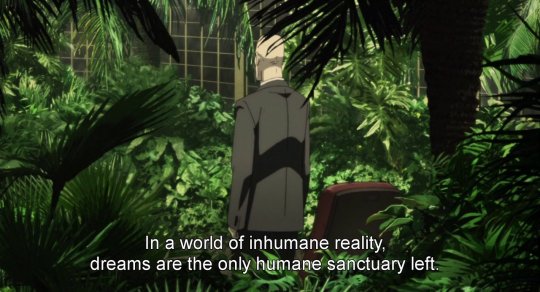
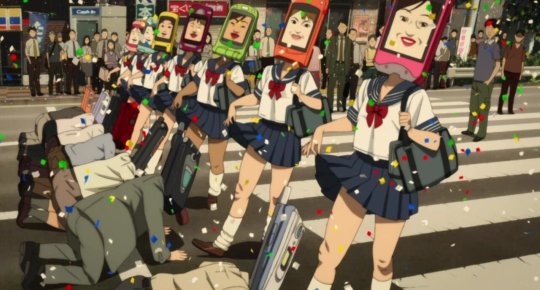

Paprika パプリカ 2006 Satoshi Kon
#anime#masterpiece#satoshi kon#great directors#japanese film#animation#great soundtrack#paprika#パプリカ#papurika#Yasutaka Tsutsui#Susumu Hirasawa
34 notes
·
View notes
Text
Mothy RealSound interviews for Miku Symphony (2023)
A summary of the key points of two interviews for the 2023 Miku Symphony linked here and here
(September 22nd)
-Mothy is pretty chuffed (positively) that the series has lasted as long as it has. He began making songs in the early days of VOCALOID, well before it was profitable (people hadn't even done CD releases yet), so it was really just a hobby he did for fun. He cites this as the reason he's been able to go on for this long (as it was low-pressure for a while).
-He didn't have this huge story in mind at the very start, but he did come up with the characters' stories over time--part of this is because he noticed back in the day that songs with good illustrations tended to be more popular, so he also wanted something that could have good illustrations (talking about Servant of Evil specifically). VOCALOIDS were easy to use for his (and other people's) stories because they didn't have concrete stories of their own (he even cites how Rin and Len are weren't even strictly twins, but a lot of people think of them as such because of his series).
-He doesn't think Servant of Evil would have been as popular if he'd released it today, citing his success to it being the early days of NicoNico (and shortly after Rin and Len were released, when their popularity was high), as well as a lot of luck.
-Early on, mothy would come up with the songs first and make the story for it later, but around the time of Judgment of Corruption he began to make songs with the whole story in mind first.
-Mothy was in a metal band in college, and was also very influenced by the metal bands he was listening to the at time, a lot of them having fairy-tale and fantasy themes in their work (Scandinavian and melodic speed metal). He again also references Makihara Noriyuki, who he liked in highschool.
-For his stories and plot twists, mothy mentions inspiration from novelist Tsutsui Yasutaka, especially his short stories, saying that he's always liked the way they'll have a twist at the end. He also thinks it's more impactful for the songs as well, that they leave more of an impression on viewers of his videos on NicoNico. He's walked back on this a tiny bit though to keep it from becoming too overdone, so sometimes he will have things end the way people expect them to. He intends to make his new series a bit less dramatic along those lines, although it'll still be with the same tastes as his other work.
-mothy feels there's benefit both to mechanical sounding VOCALOIDS and ones that sound human--that each have their own uses in making music. He essentially views voice software as a type of musical instrument.
-He's gotten the impression that games like Prosekai have increased his audience, and that while most of his fans have been women, he's seeing more men getting into the series from it too. He's also seeing a lot more diversity in the age-range of his fans, seeing some people who were kids when they started and are getting closer to middle-aged now. This is a little complicated for him because he wants to appeal to both new and old fans alike. He's been thinking about re-releasing some of his old music, but it's tricky for him to do alone.
-While he doesn't currently let his fanbase influence him much, in the past he would usually take into consideration the fact that a lot of his fans were female when working on the story. As he's a man, though, this had its limits, and ultimately he decided to focus on what he wanted to do instead. He can do things as requested, but ultimately prefers his work to be free of limitations.
-He's excited for the Miku Symphony, thinking it's perfect for the tone of his work and that it'll get a large audience for the songs. It's also important because it's just about the music itself, rather than visuals or story.
-He considers the orchestral remakes a learning experience, since they sound nothing like the original music used to make the song. They also sound different depending on each performance, as well. Classical music is also considered a much more respected medium, so he was also happy to get that recognition as a songmaker. Essentially, he enjoys them a lot and it's a fresh take on the series.
-He also talks about the other symphony performances that have actual VOCALOID singing in them--he uses a lot of technical language I'm not familiar with here but essentially he was skeptical it would work and was pleasantly surprised by how it sounded.
-mothy feels that while those who like his work are often very devoted to them, he does not view himself as being or able to become popular. He's fine with that. It's not a matter of him disliking popular stuff, he's happy VOCALOID has become mainstream, but he doesn't desire popularity for himself. He just wants his work to be remembered after he's gone.
-More of him being humble--essentially he seems to view himself as filling a niche rather than being a great player in the VOCALOID landscape, and he encourages the interviewer (and reader) to see some of the other work out there that's been getting popular as well. There's so much content out there that someone's bound to like some of it.
2 (December 6th) (note, this interview was done alongside MitchieM, who was also involved in the symphony--I am not summarizing anything in here's strictly about MitchieM, focusing only on things that are relevant to mothy)
-MitchieM talks about how inspiring mothy's work is in the creative story genre, which is something they've been interested in doing more of lately. mothy talks about realy impressed with MitchieM's work as well, such as their tuning of Miku and the wide variety of musical styles they do.
-There's a bit of contrast between them, as mothy works on one story while MitchieM does multiple, but MitchieM points out that mothy also likes to experiment with genre a lot (which mothy insists is to keep himself from getting bored doing just one thing all the time)
-mothy talks a little about the making of his two new songs, how he wanted them to feel a little orchestral since it's on the symphony album, but since it's a digitally made song and not a live performance he gave it more of a rock-like feel. "Thousand Year Vow" is intended more as a series synopsis to capture its tone overall, while Grim the End is more of a nod to long-time fans who know more of the story. They're both intended to stand on their own without feeling like a continuation of the series, necessarily.
-They talk a little about the Miku symphony performances they like, their impressions of it, etc. Mothy mentions that it's not really something you listen to while dancing, but more something you listen to while relaxing. Also the importance of it being a performance with live instruments rather than being purely digital like a lot of music out there now (furthermore being a performance in a proper auditorium with all the acoustic benefits that provides).
-Also apparently the symphony this year is being recorded on an SACD, which is a super fancy CD that can record more nuanced and delicate sound than traditional CDs?
40 notes
·
View notes
Text
Literatura japonesa.
Audición, de Ryū Murakami
El pabellón de oro, de Yukio Mishima
Vida de una geisha, de Mineko Iwasaki
Retrato de Shunkin, de Jun'ichirō Tanizaki
Diario de un viejo loco, de Jun'ichirō Tanizaki
La vida enmascarada del señor de Musashi, de Jun'ichirō Tanizaki
Arenas movedizas, de Jun'ichirō Tanizaki
Historia de la mujer convertida en mono, de Jun'ichirō Tanizaki
La llave, de Jun'ichirō Tanizaki
Cuentos de amor, de Jun'ichirō Tanizaki
Hombre lascivo y sin linaje, de Ihara Saikaku
El gran espejo del amor entre hombres, de Ihara Saikaku
Indigno de ser humano, de Osamu Dazai
La felicidad de la familia, de Osamu Dazai
Ocho escenas de Tokio, de Osamu Dazai
El mapa calcinado, de Kōbō Abe
El lagarto negro, de Rampo Edogawa
El extraño caso de la isla panorama, de Rampo Edogawa
La mirada perversa, de Rampo Edogawa
Por qué rechinó la polea del pozo, de Seishi Yokomizo
Gokumon-Tō, de Seishi Yokomizo
Yatsuhaka-Mura, de Seishi Yokomizo
Asesinato en el honjin y otros relatos, de Seishi Yokomizo
El clan Inugami, de Seishi Yokomizo
El diablo toca la flauta, de Seishi Yokomizo
Los misterios de la gata Holmes, de Jirō Akagawa
El libro de los cinco anillos, de Musashi Miyamoto
Los cuarenta y siete rōnin, de Shunsui Tamenaga
El infierno de las chicas, de Kyūsaku Yumeno
El gato que amaba los libros, de Sōsuke Natsukawa
Diarios de damas de la corte Heian, de AA. VV
Kaiki: cuentos de terror y locura, de AA. VV
Vita sexualis, de Ōgai Mori
El libro de la almohada, de Sei Shōnagon
Diez noches de sueños, de Natsume Sōseki
Una extraña historia al este del río, de Kafū Nagai
Estoy desnudo, de Yasutaka Tsutsui
La devoción del sospechoso X, de Keigo Higashino
Hanshichi. Un detective en el Japón feudal, de Kidō Okamoto
Los cuentos siniestros, de Kōbō Abe
Ensayos y libros de viajes sobre Japón.
Japón: un intento de interpretación, de Lafcadio Hearn
El ética del samurái en el Japón moderno, de Yukio Mishima
Eso no estaba en mi libro de Japón, de Beatriz Lizana López
El alma japonesa, de Enrique Gómez Carillo
El elogio de la sombra, de Jun'ichirō Tanizaki
Gracias, Japón, de Javier Landeras
Los placeres de la literatura japonesa, de Donald Keene
Crónica japonesa, de Nicolas Bouvier
Viaje al Japón, de Rudyard Kipling
En el país de los dioses, de Lafcadio Hearn
Japón inexplorado, de Isabella Bird
Círculos infinitos. Viajes a Japón, de Cees Nooteboom
12 notes
·
View notes
Text
( i have the headcanon that hirotsu is the alfred pennyworth of the port mafia don't fuck with him as they're will be hell to pay.)
An organisation made the ill-fated mistake of kidnapping hirotsu ryuurou .
Due to his age, they though that he will be an easy target , so they captured him thanks to one of their members haruki murakami and his ability sleep.
In hindsight they should have known that it been too easy to kidnapp someone who had managed to both survive and thrive in the port mafia even while it was at it's most volatile but they though nothing of it and underestimated him.
They though that the port mafia would easily replace the commander as it's assault squad after if they valued him he would been one of the executive or even the boss, instead of being passed over each time by peoples younger than him , poor old fool they though mockingly all those years of good and faithful service and his boss choose a mere doctor to lead his organisation instead of him.
So like sheep blishfully unaware that they would soon be sent to the slaugher they rejoiced at the though that his age have finally caught up to him and that they could use his grievance at being repaid his loyalty by being relegated to a glorified baby sister and manipulate him in spilling the port mafia's secrets.
Thanks to Yasutaka Tsutsui and his ability paprika, they make him hallucinate the family that he lost his dear fumiko and his children kazuo, jun and ayako.
It was well calculated they planned everything but two things escaped them : firstly that hirotsu ryuurou was even more faithful that they expected and how strong and far-reaching is the bond that the old mafioso formed with others.
Not only within the underworld, but also with the light and It's grey area, not only was the mafia out for blood with tachihara asking help to his contact in the hunting dog which was accepted thanks to hirotsu secret connections in the government, even dazai went to work hard which surprised kunikida, helped by kyouka who remembered hirotsu act of kindness they took the case immediately.
Which made known much the old gentleman of the port mafia was liked, it also surprised everyone to learn that not only does he have friends in the government but also in others country.
They also learned that you shouldn't piss off the port mafia, hirotsu ryuurou was off limit, this message was marked in blood.
Which is why this organisation ended up annihilated by an alliance that was only made possible thanks to all the bond that he made in his long life.
#bungou stray dogs#bungo stray dogs#hirotsu ryuurou#bsd hirotsu#bungou stray dogs hirotsu#bsd headcanons#bsd#bungou stray dogs headcanons
3 notes
·
View notes